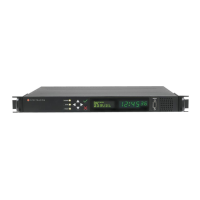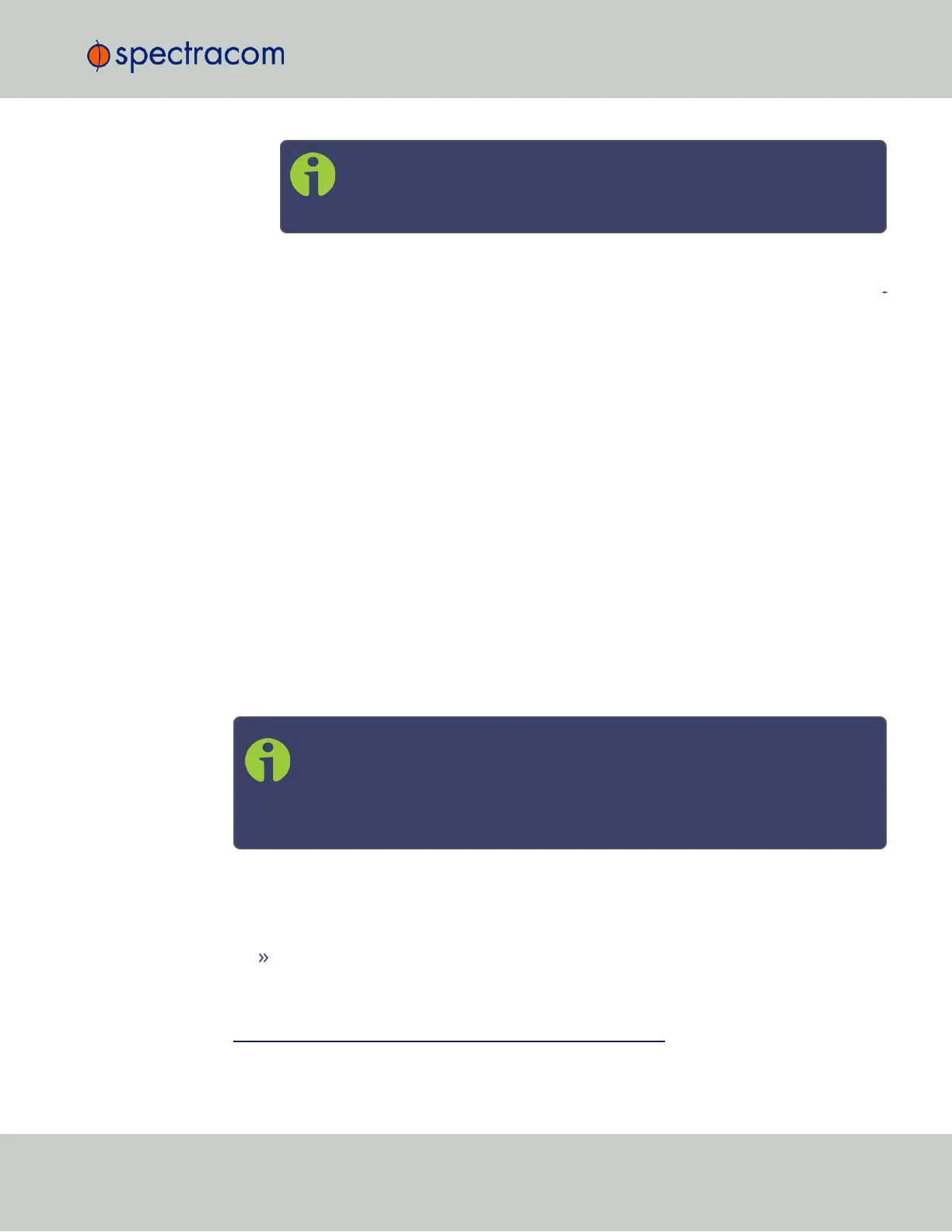Note: Since the GPS Offset and the TAI Offset have a fixed relationship,
only the GPS Offset can be set. If only the TAI offset is known, subtract 19
from it, in order to obtain the GPS offset.
Note that the data stream of GPS and several other external references includes information
about a pending Leap Second, and as such automatically corrects for a Leap Second. Never
theless, it is advisable to perform some testing in advance to ensure all system components will
adjust flawlessly. For more information, see "Leap Seconds" below.
3.2.3 Leap Seconds
3.2.3.1 Reasons for a Leap Second Correction
A Leap Second is an intercalary
1
one-second adjustment that keeps broadcast standards for
time of day close to mean solar time. Leap Seconds are required to synchronize time standards
with civil calendars, thus keeping UTC time in sync with the earth’s rotation.
If it has been determined by the International Earth Rotation and Reference Systems Service
(IERS) that a Leap Second needs to applied, this time correction occurs only at the end of a UTC
month, and has only ever been inserted at the end of June 30 or December 31. A Leap Second
may be either added or removed, but in the past, the Leap Seconds have always been added
because the earth’s rotation is slowing down.
Historically, Leap Seconds have been inserted about every 18 months. However, the Earth's
rotation rate is unpredictable in the long term, so it is not possible to predict the need for them
more than six months in advance.
Note: Leap Seconds only apply to the UTC and Local timescales. Leap Seconds
do NOT affect the GPS and TAI timescales. However, a Leap Second event will
change the GPS to UTC, and TAI to UTC time offsets. When a Leap Second
occurs, SecureSync will automatically change these offsets by the proper amount,
no matter which timescale is currently being used by the system.
As of 2016 the GPS to UTC Offset is 17 seconds. The last Leap Second occurred on June30,
2015, and the next Leap Second is scheduled for December 31, 2016.
SecureSync can be alerted of impending Leap Seconds by any of the following methods:
GNSS Receiver (if available as an input reference): The GNSS satellite system transmits
information regarding a Leap Second adjustment at a specific Time and Date an
1
Intercalary: (of a day or a month) inserted in the calendar to harmonize it with the solar year, e.g., February 29 in
leap years.
3.2 System Time
CHAPTER 3 • SecureSync User Reference Guide Rev. 23
149

